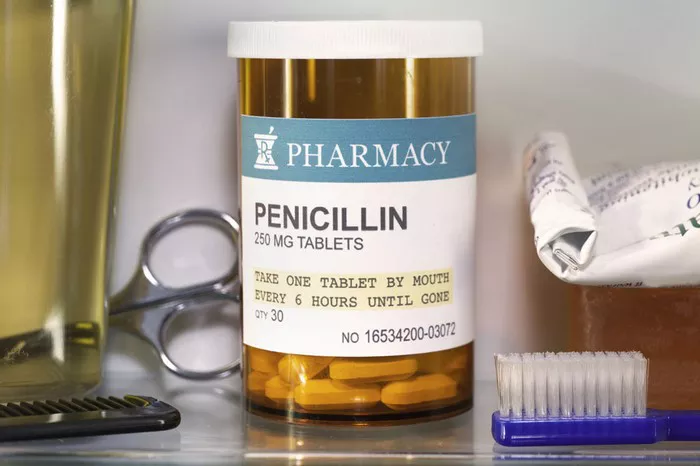Heart palpitations are a common concern among individuals taking various medications. Understanding which drugs can cause these palpitations is crucial for both patients and healthcare professionals. In this article, we will delve into the mechanisms and side effects of drugs that can lead to heart palpitations, providing valuable insights into their impact on cardiovascular health.
1. Stimulants:
Mechanism: Stimulant medications such as caffeine, nicotine, and certain illicit drugs like cocaine and amphetamines can cause heart palpitations. These substances stimulate the sympathetic nervous system, leading to increased heart rate and irregular heartbeats.
Side Effects: Along with palpitations, stimulants can also cause elevated blood pressure, anxiety, and insomnia. Prolonged use or abuse of stimulant drugs can contribute to serious cardiovascular issues, including arrhythmias and heart failure.
2. Decongestants:
Mechanism: Decongestant medications like pseudoephedrine and phenylephrine constrict blood vessels to reduce nasal congestion. However, they can also have stimulant effects on the heart, leading to palpitations.
Side Effects: In addition to palpitations, decongestants can cause increased blood pressure, nervousness, and difficulty sleeping. Patients with underlying cardiovascular conditions should use these medications cautiously under medical supervision.
3. Bronchodilators:
Mechanism: Bronchodilator drugs such as albuterol and salbutamol are commonly used to treat asthma and chronic obstructive pulmonary disease (COPD). They work by relaxing the muscles in the airways, but they can also have stimulant effects on the heart.
Side Effects: Palpitations, increased heart rate, and tremors are common side effects of bronchodilators. Patients with a history of heart rhythm disorders should inform their healthcare providers before using these medications.
4. Antidepressants:
Mechanism: Certain antidepressants, particularly selective serotonin reuptake inhibitors (SSRIs) like fluoxetine and sertraline, can affect heart rhythm by prolonging the QT interval.
Side Effects: While SSRIs are generally well-tolerated, they can cause palpitations, especially in individuals predisposed to arrhythmias. Patients should report any irregular heartbeat or chest discomfort while taking antidepressant medications.
5. Antipsychotics:
Mechanism: Some antipsychotic drugs, including haloperidol and risperidone, can prolong the QT interval and increase the risk of arrhythmias.
Side Effects: Palpitations, along with dizziness, fainting, and chest pain, may occur as side effects of antipsychotic medications. Regular monitoring of cardiac function is essential for patients on these drugs.
6. Thyroid Medications:
Mechanism: Thyroid hormones, such as levothyroxine used to treat hypothyroidism, can increase metabolism and heart rate, potentially leading to palpitations.
Side Effects: Patients starting thyroid replacement therapy should be monitored for symptoms of hyperthyroidism, including palpitations, sweating, and weight loss. Adjustments in medication dosage may be necessary to avoid cardiovascular complications.
7. Weight Loss Supplements:
Mechanism: Certain weight loss supplements, particularly those containing stimulants like ephedrine or synephrine, can increase heart rate and cause palpitations.
Side Effects: Along with palpitations, weight loss supplements may lead to high blood pressure, insomnia, and anxiety. Patients should exercise caution and consult healthcare professionals before using these products.
8. Nonsteroidal Anti-Inflammatory Drugs (NSAIDs):
Mechanism: NSAIDs such as ibuprofen and naproxen can cause fluid retention and increase blood pressure, which may indirectly contribute to palpitations in susceptible individuals.
Side Effects: While NSAIDs are primarily known for their gastrointestinal and renal effects, they can also affect cardiovascular function. Patients with heart conditions should use NSAIDs cautiously and follow recommended dosages.
9. Corticosteroids:
Mechanism: Corticosteroid medications like prednisone and dexamethasone can cause fluid retention, electrolyte imbalances, and changes in blood pressure, potentially leading to palpitations.
Side Effects: Palpitations, along with other cardiovascular effects such as hypertension and edema, may occur with prolonged corticosteroid use. Patients should be monitored for these complications, especially in high-dose or long-term treatment regimens.
10. Antibiotics:
Mechanism: Certain antibiotics, particularly those in the macrolide class like azithromycin and erythromycin, can prolong the QT interval and increase the risk of arrhythmias.
Side Effects: Palpitations, along with other cardiac symptoms such as chest pain and shortness of breath, may occur as rare but serious side effects of some antibiotics. Patients with known cardiac conditions should inform their healthcare providers before starting antibiotic therapy.
Conclusion
Several classes of medications can potentially cause heart palpitations through various mechanisms, including stimulating the heart, affecting heart rhythm, or indirectly impacting cardiovascular function. Patients should be aware of these potential side effects and communicate any concerns or symptoms to their healthcare providers. Proper monitoring, dosage adjustments, and medication management are essential for minimizing the risk of palpitations and ensuring cardiovascular safety during drug therapy.


